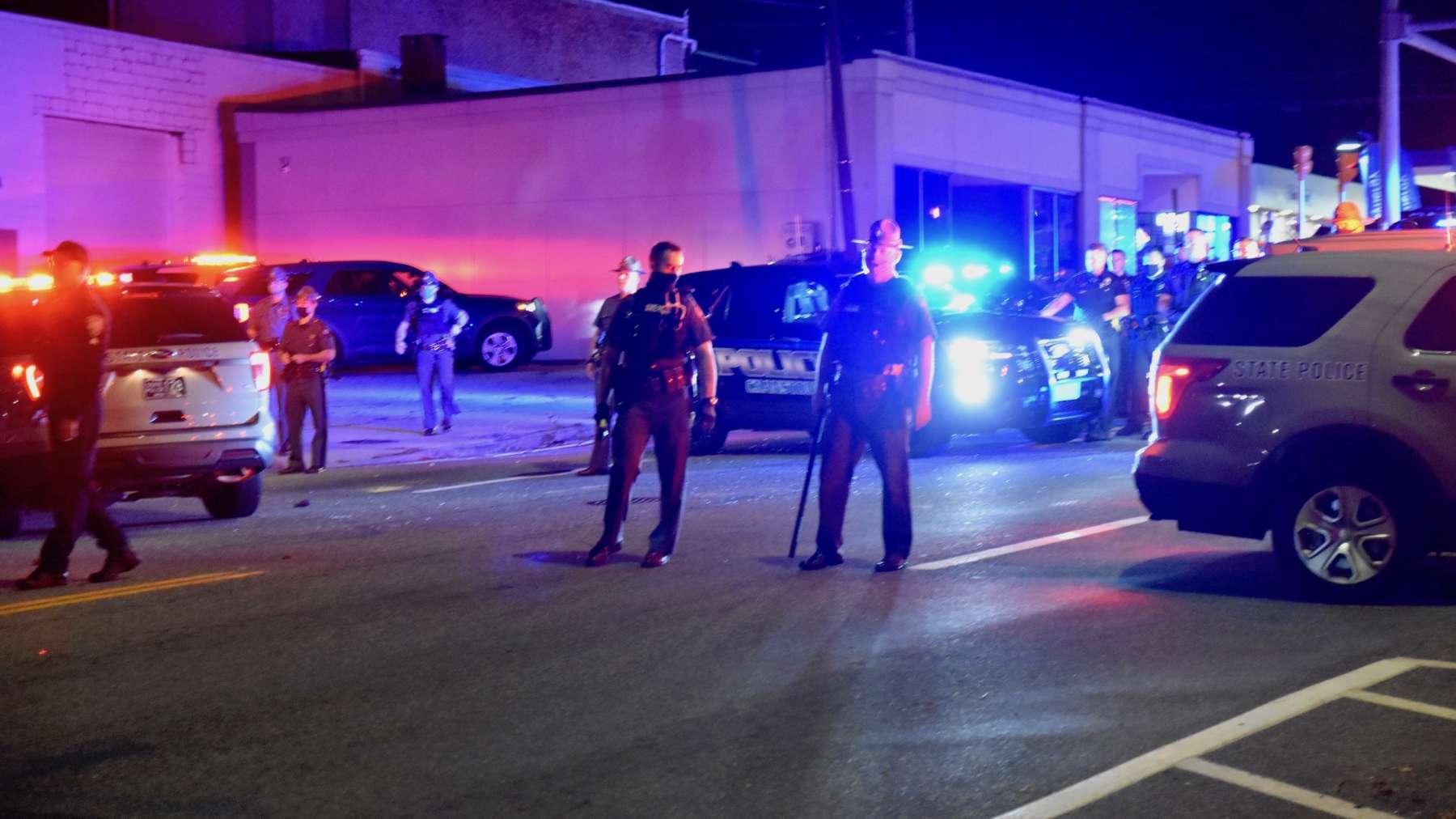Oped: Rhode Island’s police act no better than those that killed George Floyd
For Rhode Island’s police, violence is their answer. We must continue to struggle against the policing that invades and occupies our communities. Each new budget cycle, this same institution demands ever more resources from the communities it brutalizes. It is time to stop trying to reform, it is time to defund the police and reinvest in Providence.
May 5, 2021, 10:59 am
By , and
As we process the conviction of the officer that placed a knee on George Floyd’s neck, we need to remember that what happened to Floyd was not an isolated incident nor can one dismiss how this applies to police in the Ocean State. We need to come to terms with the truth: Police violence is a part of life in Rhode Island.
There are many phrases that describe how quickly time passes in life, but for the many victims of police violence, the last year has moved with painful slowness. Our Black and Brown communities are routinely brutalized by police and prisons, victimized at the hands of the “public servants,” whose salaries they pay.
In Rhode Island, and Providence in particular, we have witnessed police violence against working-class people, while city councils ignore public outcry to approve larger and larger police budgets, In fact, Police Scorecard, a site developed by data scientists to examine police violence, found that Providence’s police department is more violent than over half the police departments in the United States. It also noted that Providence spends more money on policing per capita than 85 percent of the country.
We see the routine violence of Providence police, and all too often, they act no better than the officers that murdered Floyd. Jhamal Gonsalves may be the most well-known example of police brutality in Providence. Gonsalves, a young Black painter, was run down by police for participating in a Ride Out in October. The goal of this event was to encourage the Providence community to “pick up their bikes and put down their guns.” The injuries Jhamal sustained during this encounter left him in a coma for four months and with an unclear recovery timeline ahead. Body camera footage showed officers treating Jhamal as a drug overdose case while he was unconscious.
In the protests that followed the Jhamal Gonsalves case, Jaylon Butler also experienced serious injury due to police violence. On October 23, fellow protestors witnessed police beating Butler until he was soaked in blood and shaking uncontrollably from a seizure. He experienced a second seizure in the police van. Sadly, just as onlookers begged for George Floyd’s life, so too did other arrested protestors that night beg police officers to give Butler medical treatment. Just as in the case of Floyd’s murder, Rhode Island officers ignored these pleas as they continued to stuff their police vehicle beyond capacity.
Two weeks later, Germaine Bruce was surrounded by eight to ten police cars while he was fixing his friends’ car on Wickenden Street in Providence. Germaine was beaten by police and charged with disorderly conduct and resisting arrest, despite video recordings showing no evidence of either charge. The police involved refused to provide their badge numbers.
Providence has seen police violence for years. In January of 2017, Simone Phoenix, a domestic violence survivor, went to the police for help to find safe housing after escaping from an abusive husband. Law enforcement advocates spoke to her first, and after hearing her story, declared that she required a “mental health vacation.” Officers apprehended Phoenix, and when she resisted, they beat her. The Providence police filed four misdemeanor charges against Phoenix and sent her to a mental hospital. She is now planning on suing Family Services of Rhode Island, the Police Academy, and Day One RI for her grievous mistreatment. Phoenix’s story is not only an indictment of the police, but evidence of how we have allowed mental health services in Rhode Island to become underfunded, abusive, and relegated to the predilections of the private sector.
In April 2020, just before George Floyd’s murder, Rishod Gore was beaten by police who kneeled on his neck. In this incident, it was Providence Police Sergeant Joseph Hanley who dragged Rishod from the passenger’s seat of a car, threw him to the ground, and handcuffed him. Hanley kicked Rishod in the ribs repeatedly. Released body camera footage shows the officer calling Rishod an animal and a savage. During the trial, Hanley’s lawyer asked Rishod if his Black Lives Matter mask was supportive of defunding the police and questioned him on his arrest record despite its irrelevance to the case. The officer who nearly killed him is on probation for only a year.
Germaine Bruce still does not have justice, Jhamal Gonsalves still does not have any justice, Simone Phoenix still does not have justice, and Rishod Gore still does not have justice.
For Rhode Island’s police, violence is their answer. We must continue to struggle against the policing that invades and occupies our communities. Each new budget cycle, this same institution demands ever more resources from the communities it brutalizes. It is time to stop trying to reform, it is time to defund the police and reinvest in Providence.






